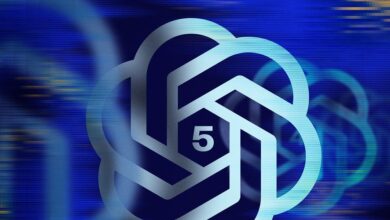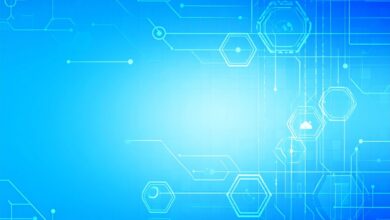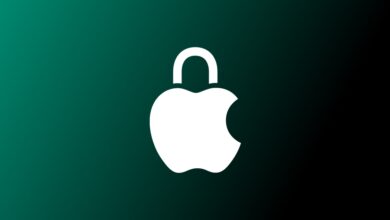25 Ways AI Will Change the Future of Work

5. The Ageless Advantage
AI isn’t just for the digital natives. It’s a game-changer for experienced workers too. Imagine AI handling information overload, providing instant access to crucial data, and even facilitating knowledge transfer between generations.
This allows seasoned pros to focus on what they do best: strategic thinking, mentoring, and leveraging hard-earned wisdom, while AI handles the tech-heavy lifting. So what typically may have prompted retirement (technology) may actually be the very thing that keeps older workers in the workplace.
In essence, AI has the power to extend careers, transforming what was once a trigger for retirement into an opportunity for continued contribution and leadership.
6. AI-Powered Learning Platforms and Training and Development
The old model of corporate training is broken. Let’s be honest, most employees dread those generic, one-size-fits-all programs that feel like a chore. But what if learning could be engaging, relevant, and even enjoyable? AI offers a powerful solution: personalized learning and development experiences that adapt to each employee’s unique needs and aspirations.
Imagine AI-powered platforms that act like personal growth partners, not just training tools. They analyze individual strengths, identify skill gaps, and curate learning paths that are tailored to specific roles and career goals. This isn’t just about pushing information; it’s about fostering a culture of continuous growth and empowerment.
Think about it: when employees feel that their company is invested in their development, they’re more likely to be engaged, motivated, and loyal. AI can help leaders create that environment of support and growth, where everyone feels equipped to reach their full potential. It’s about recognizing that our people are our greatest asset and giving them the tools they need to thrive.
7. Skill Gap Identification and Skills-Based Hiring
In today’s world of work, change is the only constant. New technologies emerge, industries evolve, and suddenly, the skills that were in high demand yesterday are obsolete today. This creates a challenge for both employees and employers: how do we stay ahead of the curve?
AI offers a powerful solution by helping us identify skill gaps and needs with unprecedented accuracy. By analyzing data on industry trends, job market demands, and individual employee capabilities, AI can pinpoint the areas where training and development are most needed. This proactive approach allows companies to invest in the right skills at the right time, ensuring that their workforce remains competitive and adaptable.
From the employee’s perspective, understanding their own skill gaps empowers them to take control of their career path and seek out opportunities for growth. It’s about fostering a culture of self-awareness and continuous improvement, where everyone feels equipped to meet the challenges of the future.
AI is transforming the way companies hire as well by prioritizing skills and enabling skills-based hiring that is more effective, equitable, and scalable, therefore opening more doors for candidates and allowing companies to find the best talent.
8. AI-Driven Coaching
Leadership isn’t about barking orders from an ivory tower. It’s about empowering individuals, fostering collaboration, and inspiring growth. But let’s face it, managers are human, and they often lack the time and resources to provide personalized coaching to every team member.
That’s where AI can step in as a valuable ally. AI-driven coaching tools can analyze employee performance data, identify areas for improvement, and offer tailored guidance and support. This isn’t about replacing the human connection; it’s about augmenting it. AI can provide managers with insights and recommendations, freeing them up to focus on building relationships, fostering empathy, and creating a positive team dynamic.
By combining the power of AI with the human touch, we can create a coaching culture that brings out the best in everyone and drives collective success.
9. Employee Experience Personalization
We’ve all heard the saying, “Treat others how you want to be treated.” In the workplace, this translates to creating an employee experience that values individuality, fosters belonging, and supports personal growth. AI can be a powerful tool in personalizing this experience.
Imagine AI systems that adapt to each employee’s preferences, providing customized communication, benefits, and development opportunities. This could mean anything from tailoring onboarding programs to suggesting relevant internal resources or even offering flexible work arrangements based on individual needs.
When employees feel seen, heard, and understood, they’re more likely to be engaged, motivated, and loyal. It’s about creating a workplace where people feel like valued individuals, not just cogs in a machine.
10. AI-Enhanced Collaboration
Collaboration is the lifeblood of any successful team. But sometimes it can be a struggle to navigate different communication styles, time zones, and working preferences. AI offers the potential to smooth out these wrinkles and enhance collaboration in meaningful ways.
AI-powered tools can facilitate communication, streamline project management, and even help teams brainstorm more effectively. For example, AI can analyze team communication patterns to identify potential conflicts or suggest ways to improve information flow. It can also automate tedious tasks like scheduling meetings or tracking progress, freeing up team members to focus on the creative and strategic aspects of their work.
By fostering a more connected, efficient, and inclusive collaboration environment, AI can help teams achieve more together than they ever could alone.
11. Reclaiming Soul Work
This is a documented goal of our CMO and one that resonates with all of us. Because let’s be real: busywork is a soul-crusher. We’ve all been there, drowning in a sea of repetitive tasks that drain our energy and stifle our creativity.
AI offers more than just efficiency. It offers a chance to reclaim work for the human spirit. It’s about unlocking our potential to focus on what truly matters: finding meaning, building relationships, and making a real impact.
Imagine a workplace where AI handles the mundane, freeing us to pursue work that nourishes our souls, that connects us to a larger purpose. It’s not just about doing work, but about finding our why in the work we do.
This is where those uniquely human skills come to play: empathy, leadership, collaboration, creativity. Expect to see more focus on developing and using these traits.
12. Meeting Culture Transformation
Meetings. The word alone can send shivers down the spines of even the most seasoned professionals. How often do we leave meetings feeling like we’ve wasted precious time, energy, and brainpower? The truth is, most meetings suck. They lack focus, they’re poorly organized, and they often fail to achieve their objectives.
But what if AI could help us fix this broken system? Imagine AI-powered tools that not only handle the logistics (scheduling, agendas, minutes) but also actively shape the meeting itself. AI could analyze team communication styles to suggest optimal attendees, ensure diverse voices are heard, and even predict potential conflicts before they derail the discussion.
This isn’t just about efficiency; it’s about fostering a culture of respect and collaboration. AI can help us create meetings where everyone feels valued, where ideas are generated freely, and where decisions are made effectively. It’s time to stop dreading meetings and start seeing them as opportunities for genuine connection and progress.
13. AI as Your Personal Productivity Partner
We all juggle a million things at once. Between emails, projects, deadlines, and the constant barrage of notifications, it’s easy to feel overwhelmed. What if we had a partner to help us navigate this chaos?
AI is emerging as that partner, offering personalized support to boost our productivity and reclaim our focus. Think beyond basic task management. Imagine AI that learns your work habits, anticipates your needs, and proactively streamlines your day. It could prioritize tasks based on urgency and importance, suggest optimal work blocks, and even filter out distractions so you can achieve deep work.
But it’s not just about doing more; it’s about working smarter. AI can free us from the mental clutter of remembering every detail, allowing us to focus on strategic thinking, creative problem-solving, and building meaningful relationships. It’s about empowering us to be more effective, more fulfilled, and ultimately, more human.
Source link




